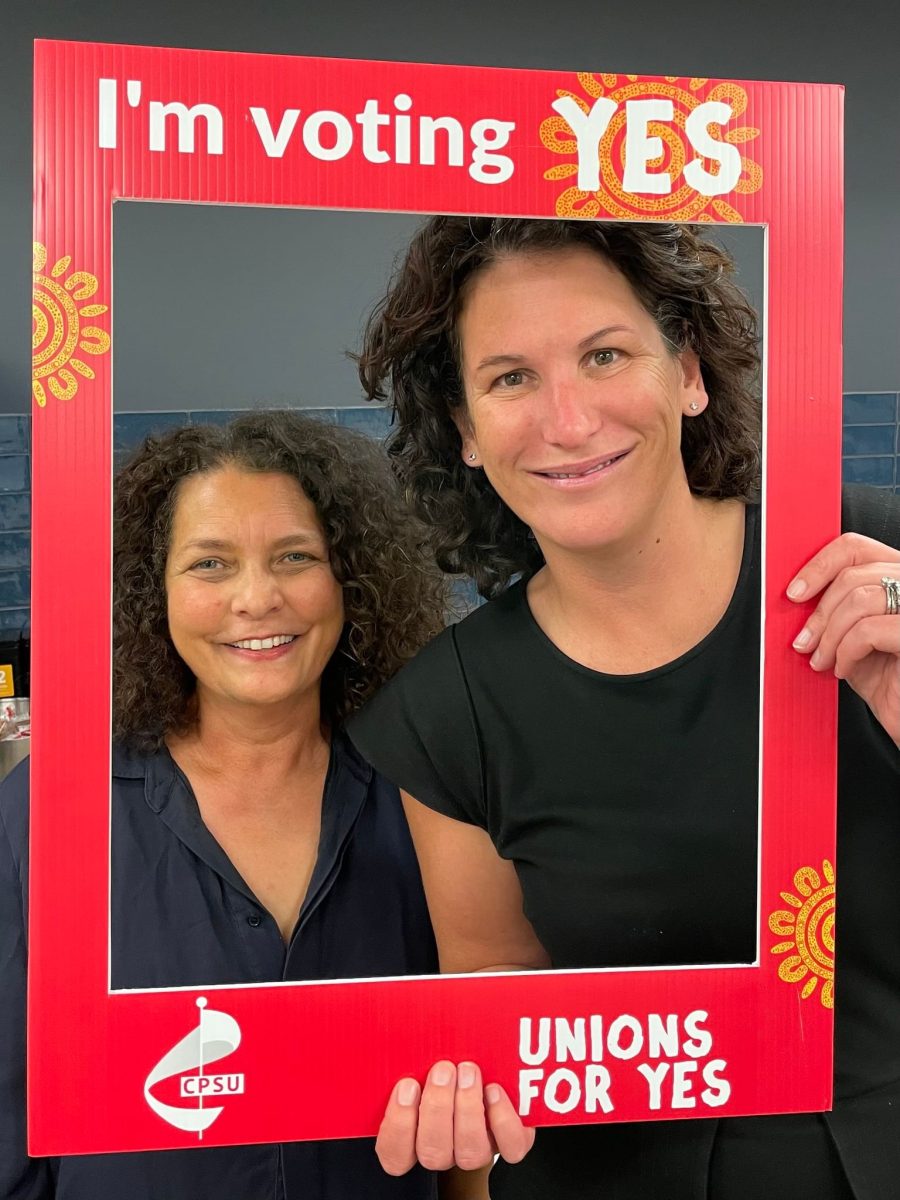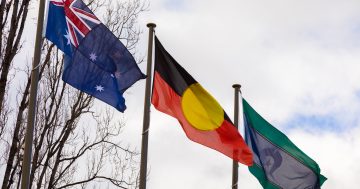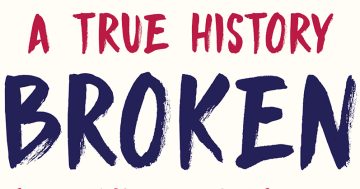
Melissa Donnelly (right) campaigning for Yes: would the union reject a 51.9 per cent vote in favour of the Voice? Photo: Instagram.
The Community and Public Sector Union has been a strong advocate for the Yes vote in the upcoming Indigenous Voice to Parliament referendum.
Its website screams ‘Unions for Yes’ the moment you click on it.
It is involved in campaigning for a positive outcome and its members have been encouraged to have their say and speak up for the Yes vote.
That’s a great thing for the union to do and it shows leadership on an important issue.
But if the referendum returns only a slim majority (let’s say 51.9 per cent), we can expect the CPSU to denounce the outcome as not a clear enough signal that Australians want First Nations people recognised in the Constitution or have a say in the policies that affect them.
If the double majority required of a referendum gets up – a majority of states and a nationwide majority – but only just scrapes in, the CPSU should issue a statement to say it is not a decisive result and so it shouldn’t count.
As ridiculous as that sounds, that is the logic the union has applied to its own membership ballot over APS wages.
A vote was held. The result came in. A majority said yes. Union bosses said no. Union bosses win.
How a minority overruling a majority can be described as anything close to a democratic process is baffling.
Katy Gallagher was right to point out, when asked about it during a radio interview last week, that that is simply a matter for the CPSU to explain.
So far, the explanation hasn’t cut it.
“The CPSU has rejected this offer because we know that we can, and we should be aiming higher than 50 per cent plus one,” said the union’s national secretary, Melissa Donnelly.
Really? Governments are often decided on such slender margins. MPs get into office by the skin of their teeth at times.
What about the margins union bosses win by?
What about every vote a union conducts with its membership?
What percentage of a membership ballot is deemed clear enough when it’s a vote to take strike action? Is 50 per cent plus one acceptable then?
It seems democracy in the CPSU is only to be found at the will of the hierarchy.
There is great discontent inside the CPSU right now, but it’s coming from both angles.
Members – a majority of members – who want their wage increases and who voted to accept the government’s offer of 11.2 per cent over three years are angry that they have been ignored.
They’re being ignored by the union they pay dues to and which is supposed to be listening to them.
On the flip side, many inside the CPSU don’t think the union has gone hard enough in its negotiations with a friendly Labor government.
It seems that side has won out, exerting pressure for Ms Donnelly to ignore the majority say and pander to the agitating minority.
Some tough nuts inside the union have even been talking about making a split from the CPSU to go it alone, so there is a real sense of the need to put out a fire before it gets out of control.
Yes, the union does have an issue with how it deals with this Labor government, seeing that it’s part of the Australian Labor Party.
But throwing democracy out the window is not the way to handle it – not if it hopes to have any level of respect from its membership or the wider community.
The CPSU’s response to this majority vote, 51.9 per cent saying yes, has more to do with its own internal politics and individual personal ambitions than it has to do with the issue at hand – which is whether its members want the pay rise on the table.
We look forward to the union’s response to the Voice referendum outcome.
Original Article published by Chris Johnson on Riotact.











